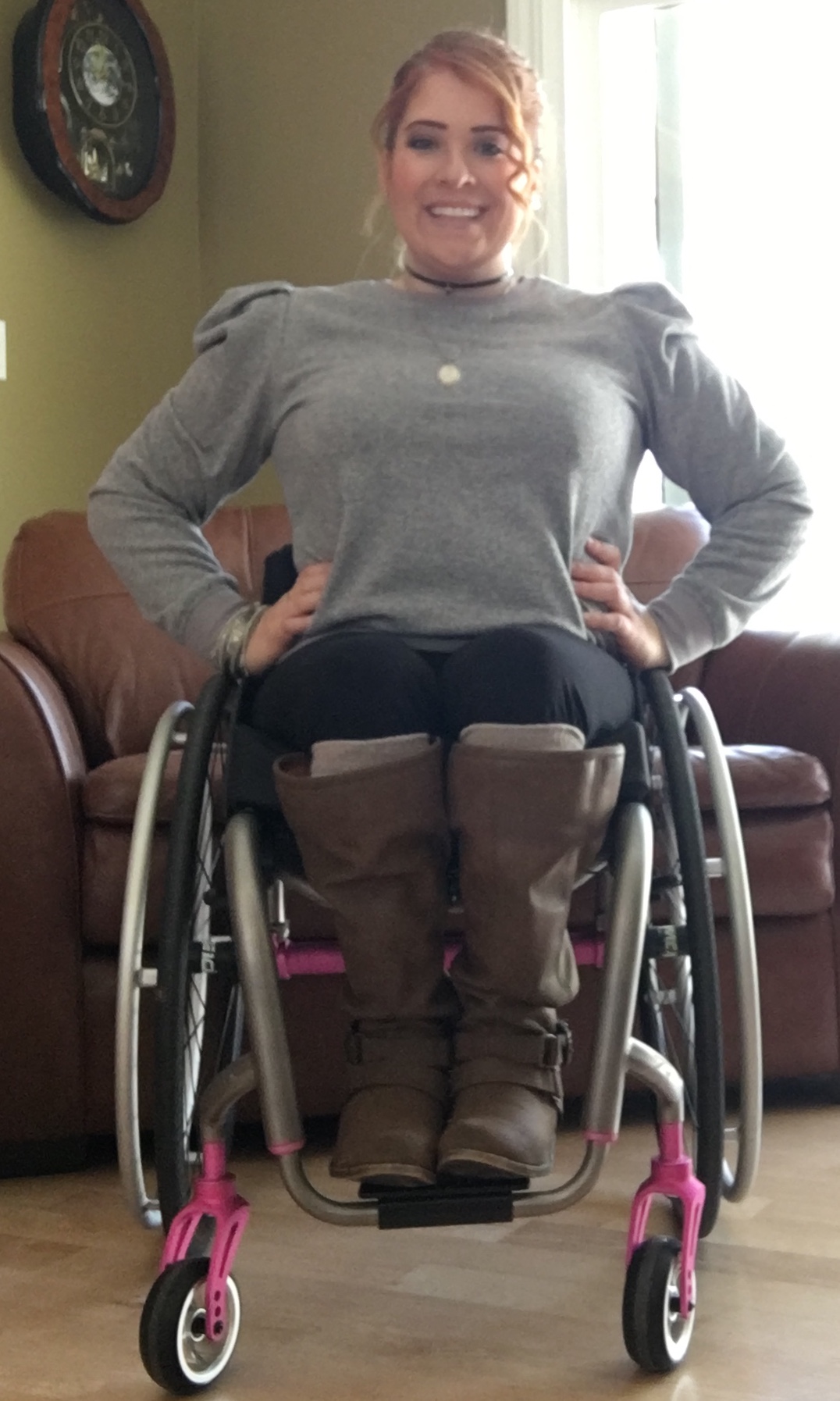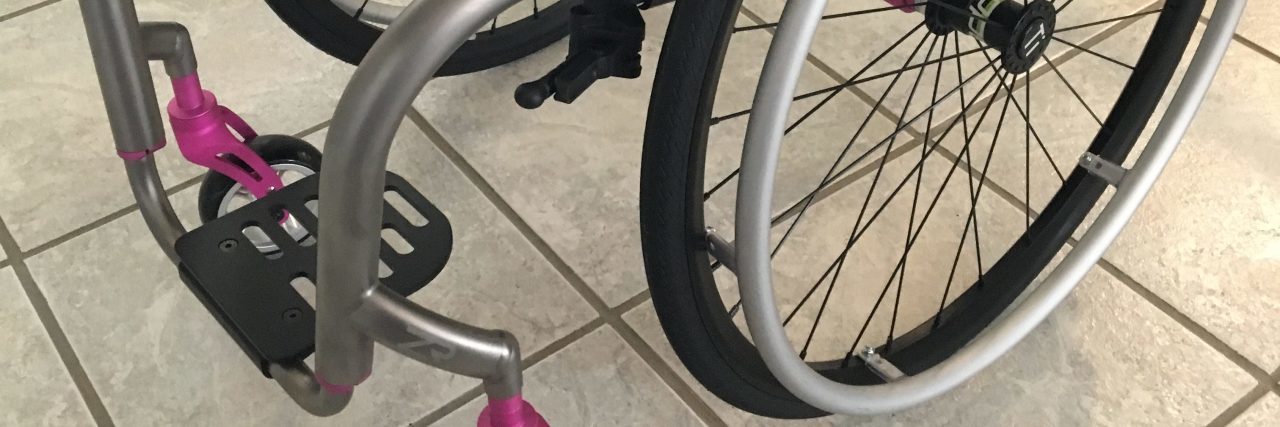When Battling Medical Insurance Makes You Question Your Worth
For anyone with chronic health issues, whether they be a physical disability, chronic pain, or mental illness, medical insurance is something of a necessary evil. Trying to convince the people who hold the purse strings, often people you never actually meet in person, what level of care you need can be exhausting, and at times can feel insurmountable. Constantly battling with insurance for the care you need in order to live your life can make you lose sight of who you are and what you deserve.
As someone with spina bifida, I have been a wheelchair user for most of my life, and prior to that, I required the assistance of orthotics and crutches for mobility. I got my first wheelchair when I was in third grade. I had just begun playing wheelchair sports, and my parents made the mistake of telling our insurance company that I needed an adjustable chair to use for both sports and for everyday use. This was my first introduction to the term “medical necessity.” We were informed that my ability to play sports was not considered “medically necessary” on top of the fact that I was mobile with the use of braces and crutches, so they saw no need to provide me with a wheelchair to allow me to travel further distances without getting tired so quickly. It took over a year of fighting with our insurance company, and my parents threatening to acquire a lawyer, to convince them to change their tune. By the time my wheelchair was approved, I had grown a significant amount, as is typical of your average third grader, and had to be measured again before the chair could be ordered.
As I got older, I took on more and more of the responsibility in dealing with the insurance company from my parents. My needs also evolved. Once I learned to drive, I needed a lighter weight wheelchair that was easy to assemble and disassemble so I could get it in and out of my car independently. I got lucky and found someone who wrote an incredibly persuasive letter to my insurance telling them that a titanium chair, although significantly more expensive up front, would save everyone time and money down the line in the form of preserving my shoulders since I have to lift the frame of my chair over my head to get it in and out of my car several times a day.

Fast forward to today. I am scheduled to receive another brand spanking new titanium chair tomorrow, but this time around has been nearly a year in the making, and it went much like it did the very first time I tried to get a wheelchair. This happened for a few reasons, one of which is that my family switched insurance companies about two years ago from an HMO plan to Kaiser. In a lot of ways, Kaiser is a well-oiled machine and I have had virtually no issues with any other aspect of receiving care — except for this. I began the process of trying to get a new chair earlier than I needed to because I anticipated it would take a long time, but I got way more than I bargained for.
One of the first things the Kaiser physical therapist said to me upon meeting me and seeing my current chair is that I would not be able to get a comparable chair through Kaiser, so I should just stick to repairing the one I have instead of trying to get a new one. I was then told that if I wanted a titanium chair, I could pay for it out of pocket. I assured him that as a Special Education teacher, I do not have a “titanium budget,” hence the reason I have medical insurance. Then, my two least favorite words in the English language came up: “medical necessity.” I was informed that what is considered medically necessary is any durable medical equipment that allows me to be mobile within my house; thus the fact that I need a lightweight chair for getting in and out of my car does not fit into those parameters.
When this was explained to me, I was utterly speechless. I explained that I do, in fact, need to be able to leave my house in order to work and live my life, and not allowing me to be able to function outside the walls of my house is essentially no better than institutionalization. In response to this, I was told that if Kaiser did in fact pay for me to get a titanium wheelchair, they would then have to provide the same to all of their other patients. This is where I really lost it. The job of medical insurance is to provide individualized care to fit the needs of individual people, so this notion that if they gave me what I was asking for, they would have to give the same to everyone else is patently ridiculous.
On a subsequent phone call with a different physical therapist, after filing a grievance against the first one, I was told that if Kaiser paid for me to get a new wheelchair, Kaiser would be the owner of said wheelchair. Which meant that if I left Kaiser at some point in the future, they would take my wheelchair back *insert eye rolling emoji here*. What interest could Kaiser have in repossessing a custom wheelchair? And what exactly does their plan for repossessing a wheelchair, which I am in during virtually all waking hours of the day, entail? After getting no direct answers to these questions, and having already been on the phone for 45 minutes, I let the physical therapist know that if these were Kaiser’s policies, I would just go ahead and get an attorney because I have a sneaking suspicion that the law is going to find these things more than slightly problematic.
This seemed to be a turning point in my quest for a new wheelchair, because although none of the people I worked with in person or talked to on the phone acknowledged it in my presence, I think they understood that I am nothing if not persistent, and I was going to continue to be a thorn in their side until they gave me what I was asking for. Their last stand was in the form of denying my Durable Medical Equipment request. At this point, I was exhausted and ready to give up, but I filed an Independent Medical Review for good measure, and to my surprise, the IMR Board compelled Kaiser to overturn their decision!
My point in telling this story is to say that battling with medical insurance can make you question not just what your needs are, but your overall worth. It’s so easy to internalize the idea that your needs are simply an inconvenience when you constantly have to struggle to have them met. If you are struggling with insurance to get the care you need, I want you to know you are not alone. You are worth it. Be persistent and insist on what you need, not just to exist, but to thrive.
Photos provided by contributor.

